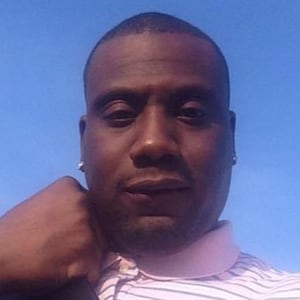The now-fired Minneapolis police officer who held his knee on George Floyd’s neck while the handcuffed black man repeatedly said he couldn’t breathe has been taken into custody and charged with murder, officials said Friday.
Derek Chauvin, 44, was charged with third-degree murder and manslaughter, Hennepin County Attorney Mike Freeman said on Friday. A criminal complaint alleges Chauvin caused Floyd’s death through “culpable negligence,” including using a restraint that police are taught is “inherently dangerous.”
“This is by far the fastest we’ve ever charged a police officer,” Freeman said Friday.
Chauvin—along with officers Thomas Lane, Tou Thao, and J. Alexander Kueng—were fired Tuesday after explosive footage of the arrest spurred a national outcry, days of intense protests, and demands for a federal investigation.
Freeman added Friday that his office “anticipate charges” against the three other officers, and added there may be more charges forthcoming for Chauvin. “We felt it appropriate to focus on the most dangerous perpetrator,” he said.
According to Minnesota law, third-degree murder is considered a “depraved heart or mind crime,” and the charge typically carries a maximum penalty of 25 years behind bars.
A criminal complaint outlines previously unknown details of the lead up to the now-infamous video of Chauvin pinning his knee on Floyd’s neck until he went limp. It says two officers, Lane and Kueng, initially responded to a call at 8:08 p.m. on May 25 that the 46-year-old had used a counterfeit $20 bill at a convenience store.
They found Floyd in his car, along with two passengers, and asked him to get out. Lane pointed a gun at Floyd and ordered him to show his hands. He then pulled Floyd out of the car and Floyd resisted being handcuffed, the complaint says.
As the pair walked Floyd to their squad car, he stiffened up, fell to the ground and said he was claustrophobic. The complaint says that Officers Chauvin and Thao then arrived and all four men tried several times to get Floyd in the car but he kept “intentionally falling down” and saying he couldn’t breathe.
When he fell down again, Kueng held Floyd’s back and Lane held his legs, while Chauvin placed his knee on the unarmed man’s neck—prompting Floyd to call out for his mother and say several times that he couldn’t breathe.
In the gut-wrenching video recorded by a bystander, Floyd was heard begging for Chauvin to loosen his knee. “My stomach hurts. My neck hurts. Please, please I can’t breathe,” he said. By the time he was loaded into an ambulance, he had no pulse, a Minneapolis Fire Department report stated.
At one point, the complaint says, one officer told Floyd, “You are talking fine” as he kept moving back and forth. Lane asked his fellow officers if they should roll Floyd on his side and said, “I’m worried about excited delirium or whatever.” But Chauvin responded: “That’s why we have him on his stomach.”
After Floyd stopped moving, Lane again suggested moving him onto his side and Kueng checked for a pulse but couldn’t find one. The officers never changed Floyd’s position.
According to bodyworn camera footage, Chauvin had his knee on Floyd’s neck for 8 minutes and 46 seconds—including nearly three minutes in which Floyd was unresponsive.

“Police are trained that this type of restraint with a subject in a prone position is inherently dangerous,” the complaint states.
The criminal complaint, however, says preliminary findings from the Hennepin County Medical Examiner indicated that Floyd didn’t die from strangulation but, rather, a combination of the restraint and “underlying health conditions including coronary artery disease and hypertensive heart disease.”
“The combined effects of Mr. Floyd being restrained by the police, his underlying health conditions and any potential intoxicants in his system likely contributed to his death,” the complaint states.
On Friday, Ben Crump, a civil rights attorney representing the 46-year-old’s family, said that the arrest was a “welcome but overdue step on the road to justice”—however, he had expected more serious charges against Chauvin, who had 17 previous complaints made about him during his 19 years with the police. Crump told CNN Friday that the family rejected the medical examiner’s findings and would pay for an independent autopsy, adding that “we know we witnessed a terrible crime.”
“The pain that the black community feels over this murder and what it reflects about the treatment of black people in America is raw and is spilling out onto streets across America,” Crump said. “While this is the right and necessary step, we need the City of Minneapolis—and cities across the country—to fix the policies and training deficiencies that permitted this unlawful killing—and so many others—to occur.”
Protesters in Minneapolis expressed some relief at the arrest.
“[I’m] glad he’s arrested, which is more than we can say about other cops out there. But it took too long,” Jack Squier, 22, from Minneapolis, told The Daily Beast. “And it shouldn’t have taken all of this. And there are three other guys still out there.”
“It took too long,” Zaynab Abdullahi, 21, said. “It is a step toward justice. But the charge. Doesn’t third-degree mean it was accidental? That is not the correct charge. It should be first-degree, whatever is the strongest for murder.”
Freeman’s office had come under fire on Thursday evening after holding a bumbling press conference in which he said prosecutors were still sifting through evidence and could not yet justify laying charges.
“There is other evidence that does not support a criminal charge,” Freeman said Thursday, before suggesting that investigators needed more time to review the evidence and should not rush “like the Freddie Gray case.”
Freeman and U.S. Attorney for the District of Minnesota, Erica MacDonald, stressed on Thursday the complexity of their investigation, which is focused on whether the officers violated any federal laws, including civil rights violations.
“It must be proven that the subject took action, or did not take action when he or she knew that was wrong and chose to do it anyway,” Macdonald said. “As with all matters, the investigation, in this case, will be comprehensive and will be conducted with the highest integrity.”
On Friday, Freeman said he was not “insensitive to what’s happened in the streets... [but] my job is to do it only when we have sufficient evidence.”
U.S. Attorney General William Barr announced Friday the Department of Justice—including the FBI—were conducting their own investigation of Floyd’s death.
“The video images of the incident that ended with [the] death of Mr. Floyd, while in the custody of Minneapolis police officers, were harrowing to watch and deeply disturbing,” Barr said.
Chauvin, who joined the force in 2001, has been involved in several other police-involved shootings throughout his career. In 2006, he was one of six officers involved in the fatal shooting of 42-year-old Wayne Reyes, who allegedly stabbed two people before reportedly turning a gun on police. A year prior, Chauvin and another officer were chasing a car that then hit and killed three people.
Ira Latrell Toles exclusively told The Daily Beast that in 2008 Chauvin barged into his home unannounced and beat him up in the bathroom before shooting him in the stomach during a domestic violence call.
“If he was reprimanded when he shot me, George Floyd would still be alive,” Toles said.
Toles, who was then 21, said that Chauvin broke into the bathroom and started to hit him without warning, prompting Toles to hit back in defense. According to local news reports at the time, Chauvin shot and wounded Toles after Toles allegedly reached for an officer’s gun.
“He tried to kill me in that bathroom,” Toles said.
The bullet went through his groin and came out his left butt cheek before hitting the bathroom wall. He still has a hole in his lower stomach from the incident.
Toles pleaded guilty to a misdemeanor charge while Chauvin continued his career with nothing more than a slap on the wrist.
In 2011, Chauvin was also one of five officers placed on a standard three-day leave after the non-fatal shooting of a 23-year-old man. The officers returned to work after the department determined that they had acted “appropriately.”
Communities United Against Police Brutality lists 10 complaints filed against Chauvin—and he only ever received two verbal reprimands. The city’s Civilian Review Authority, which lists complaints prior to September 2012, shows five more complaints, all of which were closed without discipline.
Additional reporting by Solomon Gustavo








